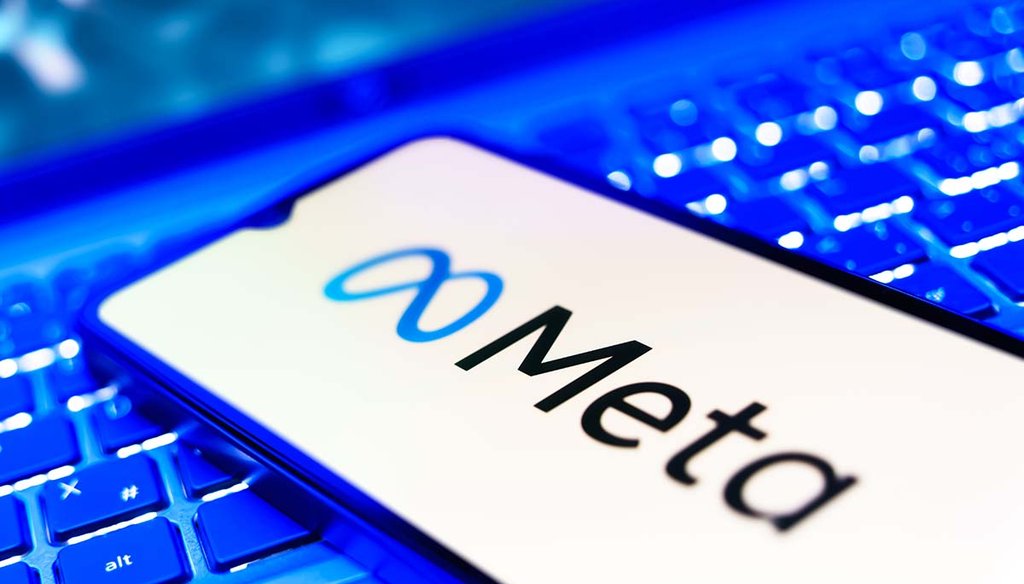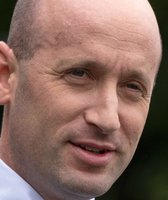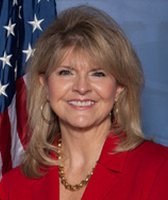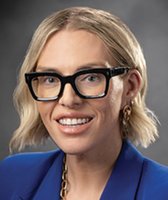Get PolitiFact in your inbox.

(Shutterstock)
Column by PolitiFact Editor-in-Chief Katie Sanders:
As I weigh Meta’s decision to break up with American fact-checkers, I keep returning to this: The censorious fact-checking program Meta described is not the fact-checking program I know.
On Tuesday, Meta CEO Mark Zuckerberg said in a five-minute video he was going to "get rid of fact-checkers" and replace them with a crowd-sourced model akin to Community Notes on X. "The fact-checkers have just been too politically biased and have destroyed more trust than they have created, especially in the U.S.," he said. He offered no examples or data.
Joel Kaplan, Meta’s new chief global affairs officer and a former senior adviser to President George W. Bush, said on "Fox & Friends" that the program was "well intentioned" at the start but there was too much bias in what fact-checking outlets chose to fact-check. Again, no examples or data.
Both officials cited a return to content moderation policies that center free expression, not censorship.
Facts are not censorship. The rhetoric in the headlines leaves the wrong impression of the day-in, day-out work of PolitiFact and nine outlets working in Meta’s U.S. fact-checking program.
PolitiFact and other fact-checkers work independently on the project Meta designed to investigate false claims and hoaxes on its platforms, while continuing to fact-check claims by politicians and pundits and on other platforms. We examine claims from across the political spectrum with the same scrutiny. Our journalism adheres to high standards of transparency, nonpartisanship and fairness, and, when we mess up, we issue public corrections.
Meta designed and adjusted its program of notices, flags and penalties for sharing false claims; fact-checkers did not and could not remove posts from Facebook or Instagram. We append our reports to posts containing false and misleading information in line with Meta’s rules, allowing users to retrace the research that drove our conclusions.
From Meta’s statements, you might think we spend our days pursuing political claims from only one side of the aisle. Not the case.
Our reporters look for viral, inaccurate claims to fact-check from across the web, prioritizing newsy events and claims about our focus areas on elections, immigration and LGBTQ+ issues, as well as claims that could have health or financial consequences.
Here’s what that looks like:
We uncover scams, in English and Spanish, that aim to fool users with false promises of subsidies and health care assistance. Users informed by our reports can decide not to click phony links or cede personal information.
We enter the chaotic information vacuum after mass shootings with carefully vetted information. Misinformers baselessly said the Uvalde, Texas, elementary school shooter was an illegal immigrant and a transgender leftist. Because of our work, people don’t have to fall for inflammatory misinformation; they can pause before they share.
After the July 13, 2024, assassination attempt on President-elect Donald Trump, we set the record straight as online commentators pushed conspiratorial claims about the suspect and Trump’s injury. They said Trump staged the shooting to help his election chances. They pinned the incident on an Italian sports blogger who had nothing to do with it. Months later, they said investigators were still locked out of the suspect’s phone.
After Hurricane Helene devastated western North Carolina, we published dozens of reports that countered conspiracy theories, including one that falsely accused federal relief workers of confiscating supplies. We explained how scientists knew that weather modification did not create the storm and how it was not a ploy to seize land for lithium mining.
That isn’t to mention all of the fact-checks we’ve written about false COVID-19 and election fraud claims — I think you get the point. When major news breaks, misinformation follows. We’re seeing it happen with the Southern California wildfires.
So, yes, the end of the U.S. fact-checking program after eight years will be a setback for people who want more reliable information in their Meta-owned social media feeds.
Critics will point to the times we got it wrong (and corrected ourselves). Personalities with shoddy truth records will point to our frequent fact-checks without explaining how their business models depend on shading the facts.
Fact-checking people with power and influence has always been gutsy and confrontational work, and we have pursued it anyway since 2007.
Meta’s investment over the years helped expand our staff and supported accountability journalism at outlets around the world. It is one of our largest revenue streams; losing this business will be painful for us and our colleagues.
But this news does not mean the end of PolitiFact; the work goes on. Our team is polishing a special report about President Joe Biden’s campaign promises. We’re preparing to cover confirmation hearings for Trump’s nominees and the transition of power. And, yes, we’re looking for your tips on suspicious online claims, wherever they may be.
Here’s what you can do.
Your online ecosystem is likely to become a messier place, filled with artificial intelligence-generated slop and unchallenged conspiracy theories. Make sure you are following our social accounts in those spaces (Facebook, Instagram, Threads, WhatsApp).
Send tips to [email protected] when you see sketchy online claims. We check about one reader suggestion a week, and we want that to increase.
It’s time to sharpen your own media literacy tool kit. Do you know how to do a reverse-image search? Identify images and videos made with AI? With our Poynter Institute colleagues, we will continue to give you tools to discern fact from fiction.
We are heartened by our readers’ responses this week. Thank you for donating to support our mission — this revenue is all the more important for our short- and long-term sustainability.
In an ever-challenging world to practice journalism, our goal remains the same: bringing you factual information to understand the world and hold elected leaders to account.
Our Sources
Please see sources linked in story.














































